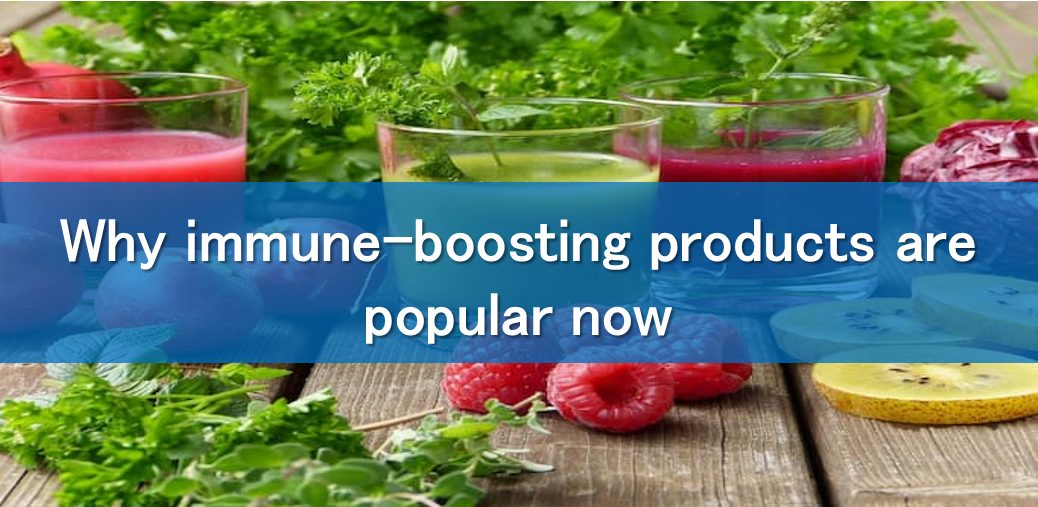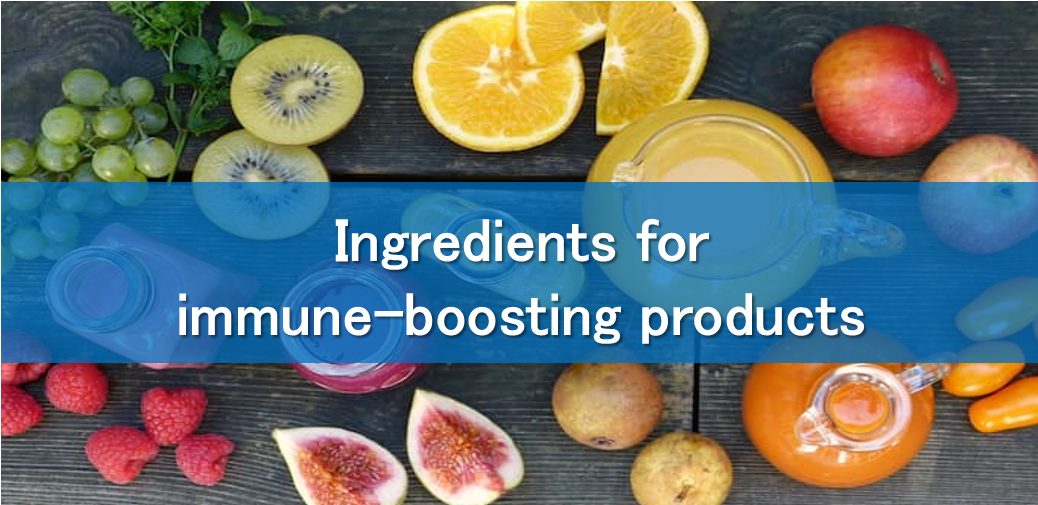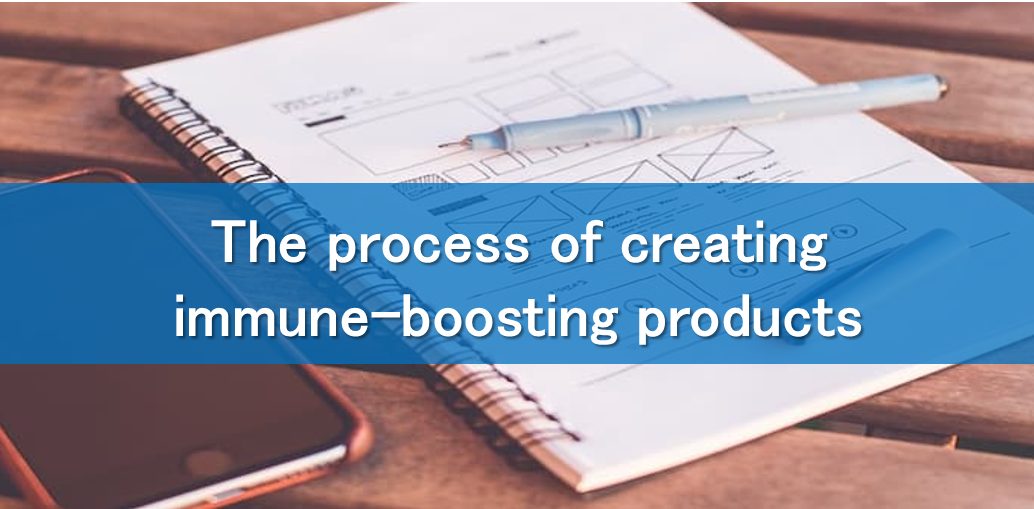
- HOME
- Cosmetic OEM Lab
What are immune-boosting products
Is making immune-boosting products difficult
What is the process of making immune-boosting products
These days, don’t we hear the word “immune-boosting” a lot? It is obvious that the demand for immune-system care is increasing rapidly, and there are a lot of items on the market. From dietary supplements to functional foods, beverages, and even skincare products, companies are tapping into this growing trend by offering products that promise to enhance immune health.
This surge in demand presents a unique opportunity for businesses to create and launch their own immune-boosting products. Whether you’re looking to enter the supplement market or explore innovative formats like gummies, powders, or drinks, there is no shortage of possibilities. However, it’s crucial to differentiate your product in this competitive space by offering something truly unique, whether that’s through innovative ingredients, formulation, packaging, or a strong brand message that resonates with health-conscious consumers.
In this article, I will provide you with a brief explanation of the current demand for immune-boosting products, the reasons behind this demand, and some ingredient tips to help you create your own private label products.
Contents

In this section, I will explore some potential reasons why immune-boosting items are gaining so much attention these days. With increasing global health concerns, people are becoming more conscious of their overall wellness and are actively seeking ways to strengthen their immune systems. Additionally, the growing interest in preventive healthcare and natural remedies has further fueled the popularity of these products. Let’s take a closer look at the key factors behind.
There are so many people who have gone through the COVID-19 pandemic. As you may remember, we experienced many restrictions, such as quarantine, wearing masks, frequent sanitizing, social distancing, and even lockdowns in some areas. These circumstances brought a great deal of attention to healthcare and personal well-being around the world.
People became more conscious about their health, realizing the importance of building a strong immune system not only to fight off viruses but also to maintain overall wellness. Some research shows that the COVID-19 outbreak prompted 45% of consumers in Europe to add more nutrients to their diets, while 29% reported being more interested in foods that can support their immune systems since the start of the pandemic. Additionally, data reveals an approximate 500% increase in searches for “immunity” in food and drink categories worldwide per week following the onset of COVID-19.
This shift in consumer behavior has continued even after restrictions eased, with many people seeking out supplements, functional foods, and wellness products that help them maintain a strong defense against future illnesses. As a result, the demand for immune-boosting items remains high, making it a significant focus area for brands and product developers across the health and wellness industry.
When you think about immune-boosting products, what kinds of items come to mind? I believe most people would first think of supplements and functional drinks. These are easy and accessible ways to start taking better care of your health because you can casually incorporate them into your daily diet without major lifestyle changes.
This product, for example, contains various immune-enhancing ingredients such as plasma lactobacilli, which are expected to support the maintenance of immune functions and help manage one’s physical condition. Plasma lactobacilli, in particular, have been gaining attention for their ability to activate immune cells and strengthen the body’s natural defenses.
Of course, there are other approaches to immune care, such as regular exercise, balanced nutrition, sufficient sleep, and stress management. However, taking supplements or functional drinks can provide a more immediate and noticeable effect, as they deliver the beneficial ingredients directly into the body in concentrated forms.
Moreover, incorporating immune-boosting products into your routine can serve as a simple yet powerful reminder to stay mindful of your overall health. When combined with healthy habits, these products can become an important part of a holistic approach to wellness.

After providing some background information on immune-boosting products, let me now share some recommended ingredients. There are many ingredients that can be incorporated into products aimed at supporting the immune system, so please consider these as a reference.
Ultimately, it is best to select ingredients based on your brand concept, target audience, and product positioning. By carefully choosing the right ingredients, you can create a product that not only meets market demands but also reflects your brand’s unique values and vision.
There’s a long history linking zinc with optimal immune function. For example, it’s well known that people with low zinc levels have few or no infection-fighting T cells, and the thymus — the organ where T cells develop — is often severely atrophied. When zinc-deficient individuals are given extra zinc, their thymus glands regenerate and begin producing T cells again.
Zinc is one of the essential trace elements, and its deficiency has been reported to cause abnormalities in the immune, nervous, and endocrine systems.These various disorders are believed to arise because over 200 enzymes require zinc for their activation, and there are many zinc-binding transcription factors and signaling molecules (such as those with zinc finger domains). When zinc is lacking, structural abnormalities occur in these proteins, leading to dysfunction across multiple systems.
Given this, it is clear that maintaining an adequate amount of zinc is crucial for overall health. It’s also safe to say that most immune-boosting products on the market today include zinc as one of their key ingredients.
Probiotics are live microorganisms that provide beneficial effects to the human body. They can be found in bacteria such as lactic acid bacteria, Bacillus subtilis (natto bacteria), and acetic acid bacteria, as well as in fermented dairy products like yogurt and lactic acid bacteria beverages.
Probiotics offer a wide range of benefits. For example, they have been shown to stimulate intestinal activity to relieve constipation, improve symptoms of diarrhea, boost immune function, and alleviate symptoms of allergic reactions and inflammatory bowel disease.
Green tea, which contains catechins and vitamin C, is known for its antioxidant properties and its ability to activate immune cells. Catechins are classified as polyphenols, a type of antioxidant that suppresses the generation of reactive oxygen species and helps prevent cellular aging. They are also thought to inhibit viruses from attaching to cells, thereby helping to prevent infections.
Moreover, green tea contains more than five times the amount of vitamin C found in lemons. Vitamin C is known to strengthen the skin and mucous membranes, helping to block the entry of pathogens into the body. Although water-soluble vitamin C is sensitive to heat, the antioxidant properties of catechins help protect it from breaking down, providing an additional benefit.
Elderberry, referring to the small, dark-purple fruits of the Sambucus nigra tree, a species of the Sambucus genus, has long been used across Europe and is one of the most widely recognized fruits in the Northern Hemisphere. Numerous studies have explored whether elderberry can help alleviate symptoms of influenza and the common cold. Rich in antioxidants, elderberry is believed to regulate excessive inflammatory responses and support immune function. Its nutrients are thought to enhance immunity, boost physical strength, and promote overall health.
Consuming ginger can help improve blood circulation and warm the body’s extremities due to its active compounds.
Among these, two are particularly noteworthy: gingerol, which enhances immune function, and shogaol, which promotes body warmth. Fresh ginger contains gingerol, the compound responsible for its spiciness, which also provides antibacterial properties, helps relieve headaches, warms the extremities, and boosts immunity. Gingerol can increase the number of white blood cells, essential components of the immune system, thereby activating immune function. Shogaol, meanwhile, improves blood circulation and helps suppress substances that cause pain.

In the last section, let me share some of the ways to start making your private label immune-boosting products. As there are so many OEM companies that can create health-care products, it is quite important to decide which one to work with. When choosing the right manufacturer, consider factors such as their experience with immune-boosting products, production capabilities, quality control standards, and certifications. Additionally, it’s crucial to ensure that they align with your brand’s values and vision for the product.
However, selecting an OEM partner is just one part of the process. You can also conduct thorough research on your own regarding not only the product itself but also other essential elements such as regulations, ingredient sourcing, and market trends. Understanding the legal requirements and regulations in your target markets is critical for ensuring that your products are compliant with safety and labeling standards.
Furthermore, conducting market research to understand consumer preferences and the competitive landscape can help you position your product effectively. This holistic approach will give you the foundation you need to create a successful and impactful immune-boosting product line.
The very first step you need to take is product selection — simply, the item that you are going to produce under your brand. For example, if you are looking for immune-boosting products, it is best to decide if you would like to go with supplements, powder, jelly, drinks, etc. By deciding on the specific product types, it becomes much easier to gather information such as the target market, customer age range, pricing strategies, and more. This clarity will help you develop a cohesive marketing and sales strategy later on.
At this stage, it is also crucial to research the regulations of the country or countries you are targeting. Each country has quite different rules regarding ingredient restrictions, packaging labeling requirements, product registration, and even claims that can be made about the product’s benefits. For example, some countries may have strict guidelines about the types of ingredients you can use or how products are marketed, especially when it comes to health claims like “immune-boosting.” Understanding these regulations upfront will save you a lot of time and trouble.
Unless you go through these steps, you won’t be able to sell your products, and it is extremely important to collect all necessary details before placing an order. Inadequate research could lead to delays, rejection of the product in the market, or additional costs for compliance adjustments. By preparing ahead, you can ensure that your products meet the regulatory standards and are ready for distribution without unexpected issues.
Once you have gathered a decent amount of information, you can start contacting OEM companies. These companies including us are mainly specialized in formulating products, suggesting ingredients, and offering guidance, so if you share your specific requirements with them, they can help guide you through the process. At this stage, it would be helpful to have a reference product in mind, so that the OEM companies can closely replicate that product’s formula, texture, and performance. Having a clear reference allows the OEM company to better understand your vision and deliver a result that aligns with your expectations. If you don’t have it, it is still fine.
Alternatively, if you’re looking for a fully customized formula, it’s important to check whether the OEM companies offer any pre-made formulas. A pre-made formula is one that has already been developed, which you can directly use for your product. This can significantly reduce formulation development time, allowing you to bring the product to market faster. For those who are new to the process or want to save time and costs, opting for a pre-made formula can be a good starting point. However, it’s important to note that using an existing formula means there will be less originality, as the same formula could potentially be used by other brands.
If originality and uniqueness are crucial for your brand, working with the OEM company to develop a custom formula would be a better option. While this may take longer and involve higher costs, it ensures that your product stands out in the market.
Once you’ve completed the steps mentioned above, it’s time to check the samples and the price for the entire production process. Most OEM companies offer free samples up to a certain point, but it’s important to clarify the sample fees in advance to avoid any surprises later on. Additionally, it’s a good idea to request packaging samples as well. Packaging plays a crucial role in branding and can impact the overall presentation of your product, so it’s essential to ensure that the packaging aligns with your vision.
Once the sample formula is finalized and you’ve reviewed the packaging samples, you’ll have a much clearer understanding of the total cost for full-scale production. This will include not just the cost of manufacturing the product itself but also the packaging, labeling, and any other associated expenses. By having a clear breakdown of these costs, you can make more informed decisions about pricing, profit margins, and your overall business strategy.

In conclusion, the rising demand for immune-boosting products is primarily driven by global health concerns, especially in the wake of the COVID-19 pandemic, which has heightened public awareness of the importance of immune health. People are increasingly seeking supplements, functional drinks, and other products to strengthen their immune systems.
To successfully enter the immune-boosting product market, it is essential for brands to carefully select product types, understand regulatory requirements, and choose reliable OEM partners. Thorough research, including market trends and ingredient sourcing, is crucial for creating a product that meets consumer needs and regulatory standards. By taking a holistic approach, businesses can develop effective and competitive immune-boosting products.
For further information, please contact us.